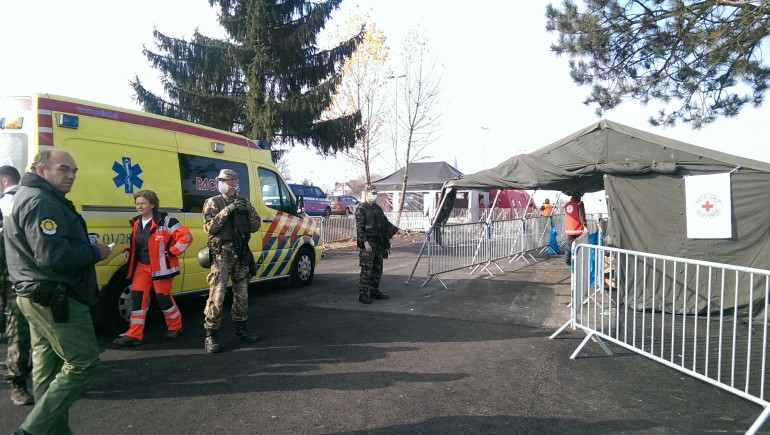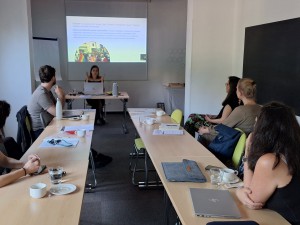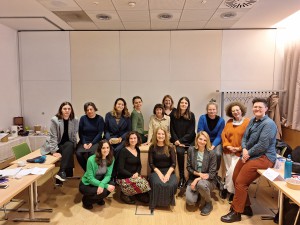Report from Dobova
23. 11. 2015 | Human Rights and Minorities, Politics

On Thursday, 19. november we were in Dobova.
General Situation:
The camp of Dobova is nowadays the major and only camp at the border of Croatia. It is close to the train station where the trains from Croatia are arriving and the refugees are transferred to the authority of the Slovenian government. Recently, the camp was enlarged with new tents for food distribution and sanitation, and the floor was concreted to avoid mud and flood. On Thursday about 2000 refugees were expected to transit through Dobova (camp). When the refugees arrived at Dobova station, they were separated in two groups in order for the police to proceed with the registration. The first one was going to the camp Livarna in Dobova, while the other group remained at the train station. Registration included identity controls and issuing of “permission to remain” on the Slovenian territory. From our observation, fingerprinting was not taken in the previous days. After registration, refugees were transferred to other camps in Slovenia (mainly Šentilj, or they were taken by train through Jesenice to Austria). The general situation in the camp was good. Food distribution was done efficiently, but water bottles could also be distributed when refugees are leaving the camp. There was lack of hot water, babies’ bottles and powder milk. No major problems were reported or observed.
Observations:
Transit: The transit was good yesterday as the registration was done quickly. Refugees were first given food and water when they were arriving into the camp, before going to the registration procedure. After registration, they could rest and eat in one of the heated tents. After registration, refugees were transferred to other camps in Slovenia.
Sanitation: Sanitations (toilets, water valves and sinks) were installed inside of two tents in the camp but one problem was that the first tent at the beginning of the camp was not connected to the sanitation facilities, forbidding the access to water for the refugees waiting in this area as they could not reach the sanitations.
Insufficient capacities: In the tents, there are no beds available, and only small amounts of mattresses. Therefore, people had to sleep on the floor on the blankets they received.
Restoring Families Link: The Red Cross RFL was providing wifi and hotspot signal for refugees who were searching for their family members. They could connect to internet in order to communicate and transmit information about their location to their family members. However, this service was available just for the persons who were searching for their family at the RFL container and not as a general service for the whole camp.
Lack of translators and doctors: Yesterday, there was just one doctor and one translator for Arabic available per shift. It means that when the refugees were arriving at the camp, the medical tent was saturated with requests. Many refugees did not have time to see a doctor before leaving the camp. The translator could not come to help the medical staff with translation as he was constantly needed at the registration.
Police limiting access: Police was sometimes limiting the access to the tents for the volunteers working for the Red Cross. Thereby, we could not always go inside the tents to see what the needs of the refugees were. They were justifying this attitude by saying that the volunteers, by their presence, were creating the problems or expectations of the refugees.




